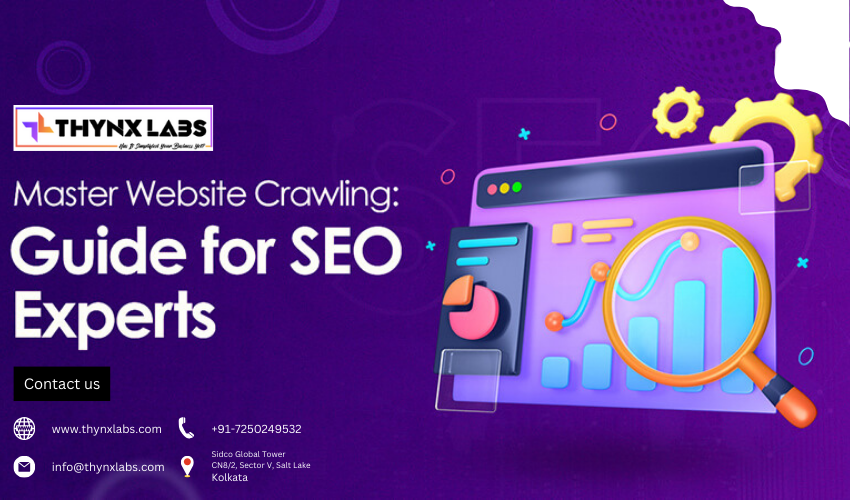Advanced On-Page SEO Techniques
Advanced On-Page SEO Techniques: Boost Your Website's Visibility
Are you looking to take your website's search engine optimization (SEO) to the next level? In the ever-evolving landscape of digital marketing, mastering advanced on-page SEO techniques is crucial for enhancing your website's visibility and driving organic traffic. In this article, we'll delve into a range of strategies that will empower you to optimize your website effectively and rise through the search engine ranks. Let's explore these techniques step by step.
1. Understanding the Importance of On-Page SEO
Before diving into advanced techniques, it's crucial to grasp the significance of on-page SEO. On-page SEO involves optimizing individual web pages to rank higher and attract relevant traffic. This foundation ensures search engines understand your content and its context, leading to improved visibility.
2. Performing Comprehensive Keyword Research
Effective keyword research remains at the heart of SEO. Advanced techniques involve identifying long-tail keywords, understanding user intent, and targeting less competitive yet highly relevant keywords.
3. Crafting High-Quality, SEO-Optimized Content
Content remains king. Craft in-depth, valuable content that addresses user queries. Focus on readability, use of keywords, and providing solutions that keep users engaged and satisfied.
4. Optimizing Meta Tags for Click-Through Rates
Meta titles and descriptions influence click-through rates. Craft compelling, concise meta tags that reflect the content's essence and encourage users to click.
5. Utilizing Header Tags for Structure and Readability
Header tags (H1, H2, etc.) structure your content and make it scannable. Use them to break down content logically and make it more accessible to both users and search engines.
6. Harnessing the Power of Internal Linking
Internal links enhance user navigation and distribute link equity across your site. Strategically interlink relevant pages to establish a clear content hierarchy.
7. Enhancing User Experience and Site Speed
User experience and site speed directly impact rankings. Optimize your site's performance by minimizing loading times, ensuring mobile responsiveness, and enhancing overall user experience.
8. Implementing Responsive Web Design
With mobile usage on the rise, responsive web design is vital. Ensure your website adapts seamlessly to various devices, providing a consistent experience.
9. Leveraging Image and Video SEO
Visual content is essential for engagement. Optimize images and videos by using descriptive file names, alt tags, and appropriate captions to improve accessibility and search visibility.
10. Integrating Schema Markup for Rich Snippets
Schema markup enhances search results with rich snippets. Implement structured data to provide search engines with more context about your content, increasing its visibility.
11. Prioritizing Mobile-Friendly Optimization
Mobile-first indexing is the norm. Prioritize mobile-friendliness, optimizing images, fonts, and overall design for smaller screens.
12. Managing URL Structure and Permalinks
A clean URL structure improves user experience and search engine understanding. Use descriptive URLs and permalinks that reflect your content's hierarchy.
13. Securing Your Website with HTTPS
Website security is paramount. Switch to HTTPS to ensure data encryption, build user trust, and potentially receive a small SEO boost.
14. Monitoring and Analyzing Your On-Page SEO
Regularly monitor your on-page SEO efforts. Analyze metrics like organic traffic, bounce rates, and keyword rankings to fine-tune your strategy.
15. Staying Updated with Algorithm Changes
Search engine algorithms evolve. Stay informed about updates and adapt your strategy to align with the latest best practices.
In conclusion, mastering advanced on-page SEO techniques requires dedication and continuous learning. By implementing these strategies, you'll be better equipped to enhance your website's visibility, attract organic traffic, and achieve sustainable growth in the dynamic world of digital marketing.
FAQs
Q.1 What is the significance of advanced on-page SEO?
Advanced on-page SEO techniques go beyond the basics to optimize your website for better search engine visibility and user experience.
Q.2 How does mobile-friendliness impact SEO?
Mobile-friendliness is crucial for SEO as search engines prioritize mobile-first indexing and users increasingly access websites via mobile devices.
Q.3 Why is user experience important for on-page SEO?
User experience affects bounce rates and user engagement, indirectly influencing search engine rankings.
Q.4 What role does content quality play in SEO?
High-quality, valuable content improves user satisfaction, dwell time, and the likelihood of earning backlinks.
Q.5 How often should I monitor my on-page SEO performance?
Regular monitoring is recommended, ideally on a monthly basis, to track changes, analyze trends, and make necessary adjustments.


